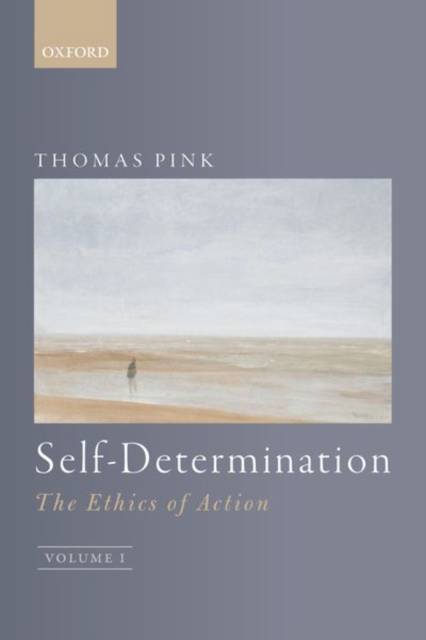
- Afhalen na 1 uur in een winkel met voorraad
- Gratis thuislevering in België vanaf € 30
- Ruim aanbod met 7 miljoen producten
- Afhalen na 1 uur in een winkel met voorraad
- Gratis thuislevering in België vanaf € 30
- Ruim aanbod met 7 miljoen producten
Zoeken
€ 67,95
+ 135 punten
Uitvoering
Omschrijving
Thomas Pink offers a new approach to the problem of free will. Do we have control of how we act, so that we are free to act in more than one way, and does it matter to morality whether we do? Pink argues that what matters to morality is not in fact the freedom to do otherwise, but something more primitive - a basic capacity or power to determine for ourselves what we do. This capacity might or might not take the form of a freedom to act in more than one way, and it might or might not be compatible with causal determinism. What really matters to morality is that it is we who determine what we do. What we do must not simply be a function of powers or capacities for which we are not responsible, or a matter of mere chance. At the heart of moral responsibility is a distinctive form of power that is quite unlike ordinary causation - a power by which we determine outcomes in a way quite differently from the way ordinary causes determine outcomes. Pink examines how this power is involved in action, and how the nature of action permits the operation of such a power to determine it.
Specificaties
Betrokkenen
- Auteur(s):
- Uitgeverij:
Inhoud
- Aantal bladzijden:
- 320
- Taal:
- Engels
Eigenschappen
- Productcode (EAN):
- 9780198843078
- Verschijningsdatum:
- 8/01/2020
- Uitvoering:
- Paperback
- Formaat:
- Trade paperback (VS)
- Afmetingen:
- 152 mm x 229 mm
- Gewicht:
- 476 g

Alleen bij Standaard Boekhandel
+ 135 punten op je klantenkaart van Standaard Boekhandel
Beoordelingen
We publiceren alleen reviews die voldoen aan de voorwaarden voor reviews. Bekijk onze voorwaarden voor reviews.








